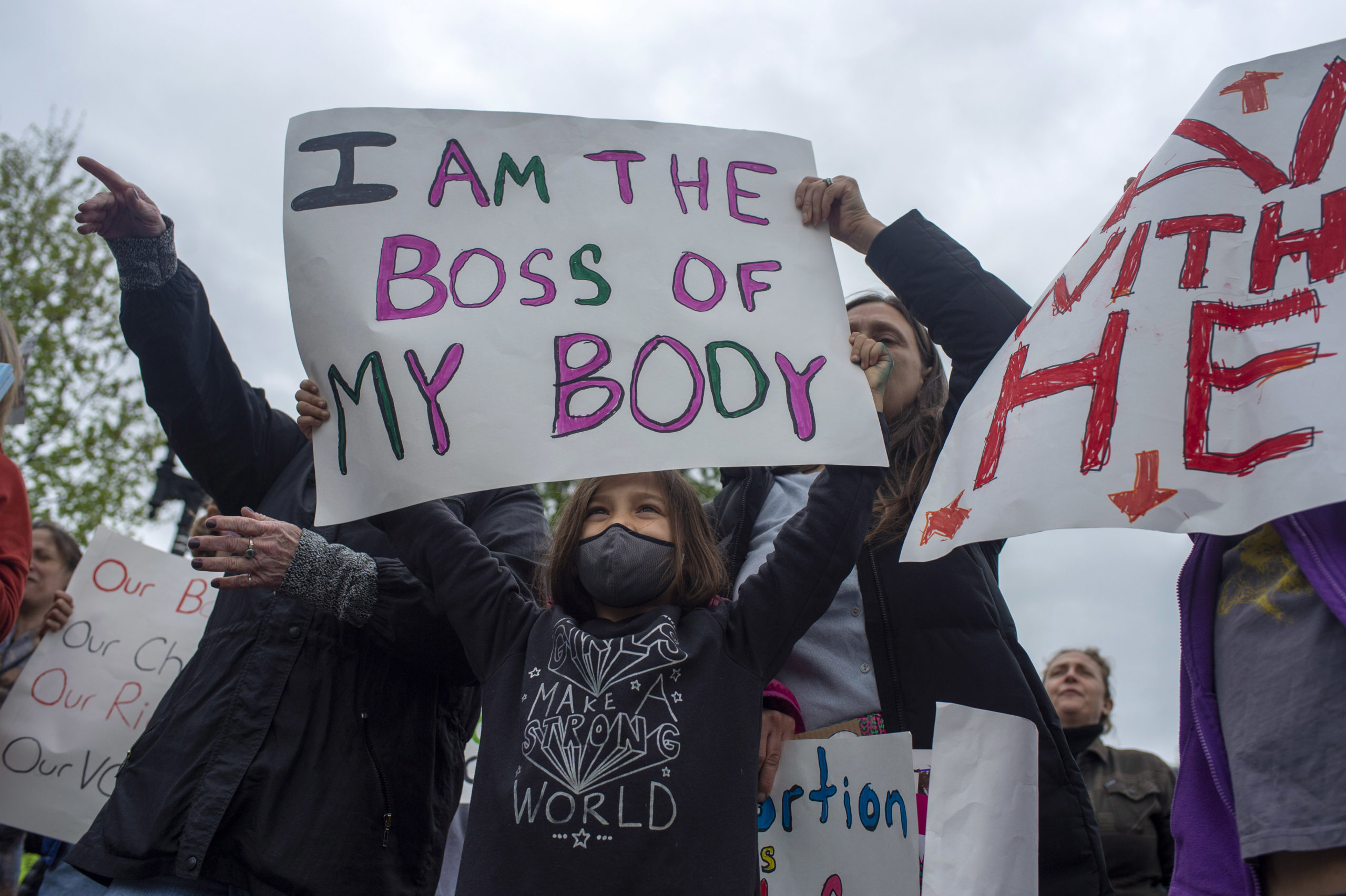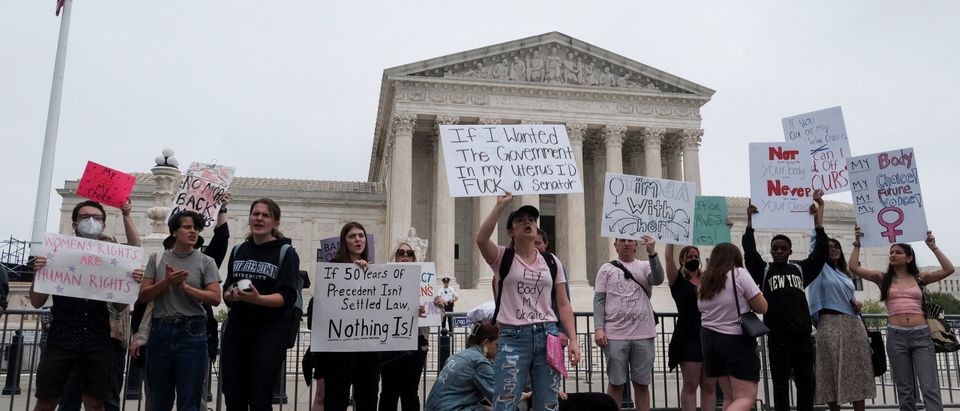- Corporate media outlets argued that abortion restrictions will hurt the economy by keeping women out of the workforce and creating financial burdens for mothers.
- The Wall Street Journal Editorial Board refuted these claims, pointing to the contributions that are lost from children who are never born.
- “Abortion is a fraught moral issue, which is why it ought to be settled democratically, rather than by judicial fiat. But its consequences can’t be measured by lifetime earnings or the labor participation rate” the WSJ argued.
Corporate media outlets have advanced the line that abortion is good for the economy because it keeps women in the labor force and saves them from the cost of raising children, but some say these arguments are fatally flawed.
Axios, CBS News, Bloomberg, Fortune and PBS each published articles advancing the argument that abortion restrictions after the likely overturning of Roe v. Wade would be a financial burden for individual women and would hamper the economy by keeping women out of the labor pool. The Wall Street Journal Editorial Board pushed back against these claims, pointing to the economic loss associated with abortion as children can’t grow up to innovate, start businesses and otherwise contribute to society if they’re never born to begin with.
The Wall Street Journal Editorial Board pointed out that, while women’s economic situations improved in the years after Roe, there were many other cultural changes in those decades, including increased access to birth control, that accounted for women’s economic progress.
The opinion piece also noted that children are good for the economy because they eventually grow up and contribute through work and innovation – all of which are lost when a child is aborted. The editorial board argued that human capital is essential to economic growth.
“These arguments also ignore the economic loss associated with the children lost to abortion, who are never able to join the workforce,” the editorial board wrote. “People are assets, the source of inventions and new businesses. Human capital is crucial to economic growth and a dynamic society.”
Axios wrote Thursday that overturning Roe v. Wade would reverse some of women’s economic progress and slow the economy generally because fewer women would finish college and start careers if they had children, citing research on the matter.
“Legalizing abortion was one of the most meaningful economic policies of the past 50 years for women — bolstering their educational attainment and career advancement, as well as reducing poverty rates for women and families, research shows,” the article said.
The article cited researchers who claimed abortion benefited children and resulted in higher wages for women, particularly black women. (RELATED: Psaki Won’t Say If Biden Supports Unrestricted Abortion Up To Moment Of Birth)
Fortune published the claim earlier this month that abortion restrictions already cost the country $100 billion annually in reduced earnings and increased turnover, citing a 2021 study from the Institute for Women’s Policy Research.
“If all current state-level abortion restrictions were eliminated—not even considering a Roe reversal—the IWPR estimates that 505,000 more women of reproductive age would be in the workforce and earning about $3 billion annually,” the article said. “That money would contribute to everything from increased spending to increased taxable income.”

WASHINGTON, DC – MAY 08: Abortion-rights activists hold signs during a Mothers Day demonstration outside the U.S. Supreme Court on May 8, 2022 in Washington, DC. (Photo by Bonnie Cash/Getty Images)
PBS ran an article May 5 originally published by the feminist organization The 19th which argued abortion was an economic issue because the costs of childbirth and raising children would hold women back financially.
A Bloomberg article May 3 also argued new abortion restrictions would hurt women economically.
“Access to abortion is credited with expanding womens’ roles in economies and labor markets around the world. The ability to access safe abortions is what keeps many American women from falling into poverty, according to decades of research,” the article stated.
CBS News argued reduced access to abortions would be especially harmful for poor women, who would likely need more government aid and drive up costs associated with food stamps and welfare programs.
The CBS News article relied on a study of over 1,000 women which found that those who sought abortions but weren’t able to get them had worse financial distress in the following years compared to women who did get abortions.
Treasury Department Secretary Janet Yellen echoed the media’s claims in Tuesday comments to senators about inflation, arguing that “eliminating the right of women to make decisions about when and whether to have children would have very damaging effects on the economy and would set women back by decades.”
In addition to challenging the broader media’s assumptions about abortion limits hurting the economy, the WSJ’s editorial board said those arguments distracted from the more important moral components of the abortion debate.
“Abortion is a fraught moral issue, which is why it ought to be settled democratically, rather than by judicial fiat. But its consequences can’t be measured by lifetime earnings or the labor participation rate,” the article said. “Putting the difficult moral choice of abortion in such utilitarian terms won’t win over many converts.”
All content created by the Daily Caller News Foundation, an independent and nonpartisan newswire service, is available without charge to any legitimate news publisher that can provide a large audience. All republished articles must include our logo, our reporter’s byline and their DCNF affiliation. For any questions about our guidelines or partnering with us, please contact licensing@dailycallernewsfoundation.org.


